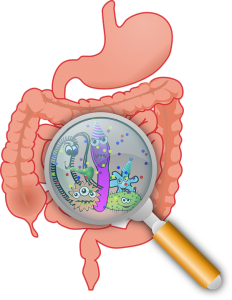 You may have heard that breakfast is the most important meal of the day. However, is this really true or just an old wives’ tale? Recent research does show that a high-quality breakfast can improve health-related quality of life. However along with this finding, a new study shows that eating this meal could lower your heart disease risk. Let’s learn a little more about the importance of your morning meal for overall health and how you can make it healthier.
You may have heard that breakfast is the most important meal of the day. However, is this really true or just an old wives’ tale? Recent research does show that a high-quality breakfast can improve health-related quality of life. However along with this finding, a new study shows that eating this meal could lower your heart disease risk. Let’s learn a little more about the importance of your morning meal for overall health and how you can make it healthier.
Breakfast and quality of life
In a study of adolescents, those who consumed a poor quality breakfast had higher levels of stress and depression than those who skipped or had a high quality morning meal. Those who consumed a high quality breakfast had the lowest levels of stress and depression. Therefore, it’s not just about whether you eat breakfast or not, but if you eat a high quality meal.
Another study looked more closely at the quality of breakfast that can bring about health benefits. This study found that a high-quality morning meal will be balanced with protein, fiber, and vitamins and nutrients like vitamins A, C, and D as well as calcium and iron.
Breakfast and heart health
Not only may breakfast improve quality of life, but it could also extend your life. This is because a recent study found that eating breakfast could lower your risk of heart disease. This study looked at a sample of health data from over 6000 adults aged 40 to 75 years old over 17 to 23 years. Study results show that skipping your morning meal was linked with an increased risk of death from heart disease.
As previous studies have found though, this doesn’t mean that eating doughnuts and pastries with sugary coffee drinks each morning is healthy. Therefore, to make the most of your morning meal and have it benefit health, make it balanced.
How to create a healthy breakfast
Breakfast is not just good for heart health and mental health, but can also lower risk of chronic disease like diabetes. Because of its many potential health benefits, be sure to make your morning meal its best by using the following tips.
- Start with a healthy protein. Cook up a few eggs, turkey bacon, and/or low sodium Canadian bacon for heart healthy proteins. And if you follow a meatless diet, then enjoy scrambled soft tofu with or without some black beans. Another meatless breakfast option is protein-rich Greek yogurt or oatmeal with chopped walnuts.
- Add in gut-friendly fiber. Once you’ve chosen your protein base, add in some antioxidant and fiber-rich foods like fruits and vegetables. Throw some spinach in your omelette or top your oatmeal or yogurt with berries or sliced apples. Other ideas include blending your yogurt with fruit for a drinkable balanced breakfast or sprinkling some chia seeds on your oatmeal, yogurt, or avocado toast.
- Don’t forget healthy fats. Sliced avocado with eggs or spread on toast, or using olive oil to cook your eggs can add healthy fats to your morning meal. Other healthy fats you can add include nuts, seeds, and salmon (like smoked salmon on toast or a whole grain bagel).
- Limit sugar intake. It can be tempting to enjoy a doughnut on the way to work or from the break room. Also, it can be just as easy to grab a whipped cream topped coffee drink to start your day. However, a sugary start can lead to unhealthy eating habits throughout the day. Therefore, stick to low sugar options. If you crave sugar in the morning, try instead a Greek yogurt with a drizzle of honey or a delicious low sugar protein shake flavored with peanut butter, vanilla, or cocoa to help satisfy your sweet tooth.
- Don’t drink your calories. Instead of sugary coffee drinks, stick to sugar-free options like coffee with sugar-free creamer and/or sweetener. Other low-calorie breakfast drinks include hot or iced tea with low-calorie sweetener, lemon or cucumber-infused water, unsweetened almond milk, or just plain water.
And just to be sure you consume your daily dose of nutrients, a supplement for heart health may also help. Circova by Vita Sciences contains natural ingredients like niacin, L-arginine, and hawthorne to help improve blood flow and blood pressure. Improvements like these can help lower heart health risk, along with a healthy diet of course.
 When you first wake up in the money, it may be easy to grab something quick like a donut, pastry, or a quick bowl of cereal. However, what you choose to eat for breakfast could very well set the tone for what you eat the rest of the day. In fact, research shows that if you reduce carbohydrate intake at breakfast, then you could help control your blood glucose levels. Let’s learn a little more about this study, about blood glucose levels, as well as ways you can reduce carbs at your next morning meal.
When you first wake up in the money, it may be easy to grab something quick like a donut, pastry, or a quick bowl of cereal. However, what you choose to eat for breakfast could very well set the tone for what you eat the rest of the day. In fact, research shows that if you reduce carbohydrate intake at breakfast, then you could help control your blood glucose levels. Let’s learn a little more about this study, about blood glucose levels, as well as ways you can reduce carbs at your next morning meal. When it comes to eating healthy, your primary concern may be the short-term goal of losing weight. You may want to fit into a certain piece of clothing, or be in better shape for an upcoming event. However, it’s important not to forget that eating healthy can ultimately help you to extend your life. A recent report reveals that one in five deaths globally was linked to a poor diet.
When it comes to eating healthy, your primary concern may be the short-term goal of losing weight. You may want to fit into a certain piece of clothing, or be in better shape for an upcoming event. However, it’s important not to forget that eating healthy can ultimately help you to extend your life. A recent report reveals that one in five deaths globally was linked to a poor diet. Anyone who has been on a healthy lifestyle plan knows that you should try not to drink your calories. This is because you want to cut calories wherever you can to lose weight. However, cutting out those sugary drinks are not only helpful in weight loss, but also in cutting your disease risk. In fact, a recent study found that those who drank less sugary drinks had a lower risk of chronic diseases and early death as compared to those who drank sugary drinks often.
Anyone who has been on a healthy lifestyle plan knows that you should try not to drink your calories. This is because you want to cut calories wherever you can to lose weight. However, cutting out those sugary drinks are not only helpful in weight loss, but also in cutting your disease risk. In fact, a recent study found that those who drank less sugary drinks had a lower risk of chronic diseases and early death as compared to those who drank sugary drinks often. With new year’s resolutions perhaps on their second wind, and summer approaching, you may be considering a new diet. Maybe this is a reboot of the diet you started at the beginning of January. Or maybe you saw a new fad diet online that promises quick results just in time for bathing suit season. But before you fall into this trap, you should know that current research shows that yo-yo dieting could hurt your heart.
With new year’s resolutions perhaps on their second wind, and summer approaching, you may be considering a new diet. Maybe this is a reboot of the diet you started at the beginning of January. Or maybe you saw a new fad diet online that promises quick results just in time for bathing suit season. But before you fall into this trap, you should know that current research shows that yo-yo dieting could hurt your heart. Although some fats are healthy in a balanced diet, too much of anything can be a harmful thing. For some people, like those with irritable bowel syndrome, too much fat in the diet may cause digestive distress. And for those with conditions like pancreatitis, fat is not digested well, so must be limited in the diet. Recent research shows that anyone, no matter their health status, may be at risk for gut health issues on a high fat diet.
Although some fats are healthy in a balanced diet, too much of anything can be a harmful thing. For some people, like those with irritable bowel syndrome, too much fat in the diet may cause digestive distress. And for those with conditions like pancreatitis, fat is not digested well, so must be limited in the diet. Recent research shows that anyone, no matter their health status, may be at risk for gut health issues on a high fat diet. If you read just about any healthy eating plan, you may see the phrase “eat less processed foods.” This can seem like a difficult task since many foods in the grocery store aisles seem to contain long lists of ingredients. Therefore, it can be hard to figure out what to eat for optimal health while still staying within your food budget. However, recent research shows that eating too many ultraprocessed foods can increase risk of death. Let’s learn a bit about these foods and how you can clean up your diet.
If you read just about any healthy eating plan, you may see the phrase “eat less processed foods.” This can seem like a difficult task since many foods in the grocery store aisles seem to contain long lists of ingredients. Therefore, it can be hard to figure out what to eat for optimal health while still staying within your food budget. However, recent research shows that eating too many ultraprocessed foods can increase risk of death. Let’s learn a bit about these foods and how you can clean up your diet. When you’re planning your healthy diet this year, don’t forget the protein. However, if you’re following a low carbohydrate, paleo, or keto diet this year, be sure to plan your protein in a healthful way. Many people trying to cut carbs often just eat whatever protein they crave. This can sometimes mean lots of burgers, sausage, and bacon. This type of red meat is ok in moderation. But too much red meat can be harmful to heart health. Recent studies show that red meat can release a chemical in the body that can put you at greater risk for heart disease.
When you’re planning your healthy diet this year, don’t forget the protein. However, if you’re following a low carbohydrate, paleo, or keto diet this year, be sure to plan your protein in a healthful way. Many people trying to cut carbs often just eat whatever protein they crave. This can sometimes mean lots of burgers, sausage, and bacon. This type of red meat is ok in moderation. But too much red meat can be harmful to heart health. Recent studies show that red meat can release a chemical in the body that can put you at greater risk for heart disease. Diabetes can be a tough disease to manage. From doctor’s visits to medications to daily blood glucose checks, it can be a lot to juggle for anyone. Not only that, but having diabetes means diet changes that can make every meal or snack a challenge. Counting carbohydrates and reading labels can become a new task to take on every time you buy groceries. This can be time-consuming and can also make social events stressful.
Diabetes can be a tough disease to manage. From doctor’s visits to medications to daily blood glucose checks, it can be a lot to juggle for anyone. Not only that, but having diabetes means diet changes that can make every meal or snack a challenge. Counting carbohydrates and reading labels can become a new task to take on every time you buy groceries. This can be time-consuming and can also make social events stressful. The Greek-style diet has long been touted as one that is full of heart healthy benefits. These benefits are thought to stem from the vast array of healthy fats from plant-based sources and limiting of saturated fats from red meats as well as the rich source of fruits and vegetables in this Mediterranean regimen. However, the health benefits may extend much further than initially realized. A recent study shows that the Mediterranean diet may help to lengthen life of older adults.
The Greek-style diet has long been touted as one that is full of heart healthy benefits. These benefits are thought to stem from the vast array of healthy fats from plant-based sources and limiting of saturated fats from red meats as well as the rich source of fruits and vegetables in this Mediterranean regimen. However, the health benefits may extend much further than initially realized. A recent study shows that the Mediterranean diet may help to lengthen life of older adults.